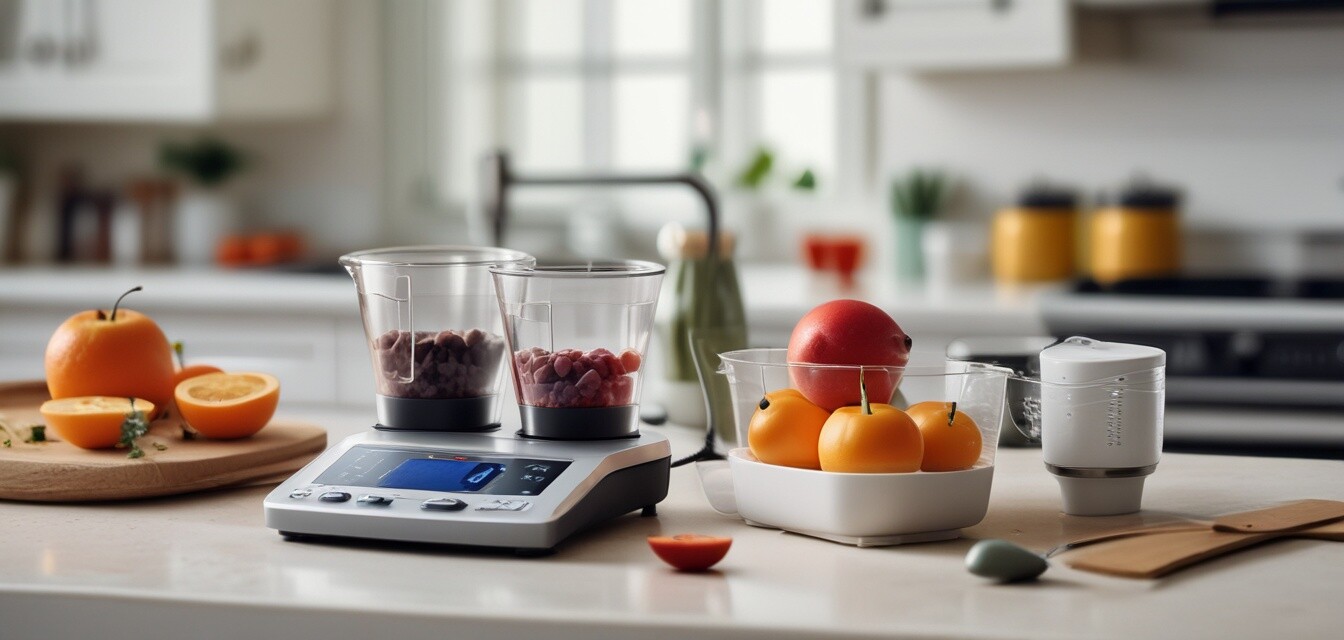
Essential Smart Kitchen Gadgets for Seniors with Diabetes
Key Takeaways
- Smart kitchen gadgets can significantly aid seniors in managing their diet.
- Features such as app connectivity, digital food scales, and meal planning help simplify the cooking process.
- Consider accessibility and ease of use when selecting gadgets for seniors.
- Always choose products that provide reliable nutritional information.
- Explore various options to find the best fit for individual dietary needs.
Managing diabetes can be a challenging endeavor, particularly for seniors who may also face mobility and cognitive challenges. Fortunately, modern smart kitchen gadgets can help simplify meal preparation and adhere to a healthy diet. In this guide, we explore the essential smart kitchen gadgets that are tailored for seniors with diabetes, highlighting their features and benefits.
Why smart kitchen gadgets are important for seniors with diabetes
Staying on top of dietary restrictions is crucial for seniors with diabetes. Smart kitchen gadgets can empower them to monitor their food intake, prepare meals safely, and make healthier choices that accommodate their dietary needs. These products not only help in measuring ingredients precisely but also often feature apps that offer useful nutritional information.
Essential smart kitchen gadgets
| Gadget Name | Description | Benefits |
|---|---|---|
| Smart Food Scale | A digital scale that measures food quantities precisely. | Helps in portion control and accurate carbohydrate counting. |
| Smart Measuring Cups | Measuring cups that sync with apps for nutritional tracking. | Ensures accurate measurements for recipes while tracking calories. |
| Smart Instant Pot | Multi-cooker that can be programmed for various meals. | Simplifies meal preparation and cooking, making healthy results easier. |
| Connected Recipe Apps | Apps that suggest diabetes-friendly recipes based on dietary needs. | Offers meal planning and grocery lists tailored to requirements. |
| Smart Refrigerator | A fridge that tracks food expiration dates and inventory. | Helps in reducing waste and ensuring fresh ingredients for healthy meals. |
Features to look for in smart kitchen gadgets
When selecting smart kitchen gadgets for seniors with diabetes, it’s important to consider specific features that enhance usability and accessibility. Here are key features to keep in mind:
- Ease of Use: Opt for devices with intuitive interfaces and clear instructions.
- Connectivity: Gadgets that sync with smartphones or tablets provide added convenience.
- Measurement Accuracy: Devices that ensure precise measurements can aid in dietary management.
- App Integration: Look for gadgets that come with apps for tracking nutrition and meal prep.
- Safety Features: Devices should have features that prevent accidents, such as auto shut-off.
Tips for using smart kitchen gadgets effectively
Beginner’s Section
- Start with one or two gadgets that address the most pressing needs.
- Familiarize yourself with how each gadget works through the manual or online videos.
- Keep the gadgets easily accessible in the kitchen for regular use.
- Make it a family activity to help with meal preparation using these gadgets.
- Take advantage of app features to set reminders or make grocery lists.
Conclusion
Smart kitchen gadgets hold the potential to significantly enhance the cooking and meal prep experience for seniors with diabetes, offering them greater independence and healthier dining options. By choosing the right tools, seniors can enjoy meals that meet their dietary requirements while simplifying the cooking process. For more insights on smart home technology that enhances lifestyle, check out our guides on Connected Home Assistants and Home Security Solutions.
Pros
- Encourages healthier eating habits.
- Enhances independence in meal preparation.
- Simplifies tracking nutritional intake.
- Can be easily integrated with existing technology.
Cons
- Some devices may require a learning curve.
- Initial investment costs can be high.
- Dependence on technology may pose challenges for less tech-savvy seniors.
For a deeper dive into kitchen solutions, explore our other buying guides on Buying Guides or stay updated with the News and Trends in smart home technology.